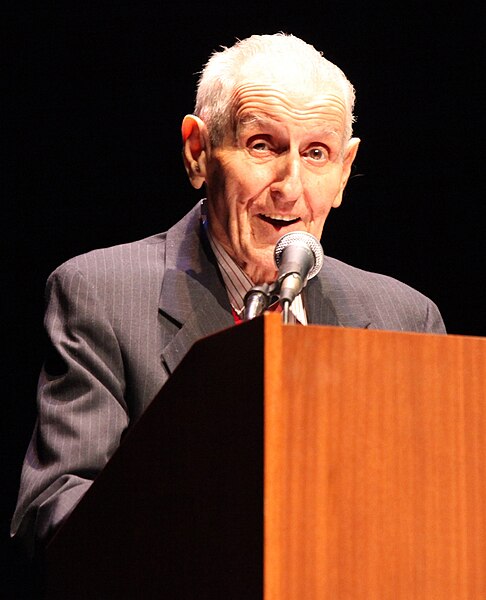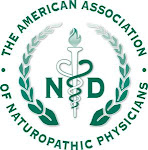Dr. Jack Kevorkian speaks at UCLA in January 2011. Photo by Halebtsi via Wikimedia Commons.
Dr. Jack Kevorkian died last Friday in Royal Oak, Michigan, from pneumonia and kidney failure. If you will remember, Kevorkian defied prosecutors and the courts to help terminally ill patients end their lives at times of their own choosing, and paid for his work with eight years in prison after being convicted of second-degree murder in the death of the last of the more than 100 patients whose suicides he assisted. So why is such ancient history relevant to us today? Because the fact is that our unprecedented longevity, courtesy of medical technology, often brings with it incalculable pain to patients, families, and the collective economy. I clearly recall the doctor-as-god mentality of the 1970s and ’80s, with white-coated knights heroically battling death by whatever means available, unaware of and unchallenged by the wishes of the afflicted patient. This mindset has not disappeared from our professional ethic, as we find ourselves compelled to combat the incurable cancer, tube feed the severely compromised newborn, or pump the heart of the nursing home patient whose time has come to stop beating.
So where does the integrative medicine community stand on this issue? I am not aware of any research, educational conference, or journal article that has engaged our attention and conversation on the topic of facilitating another’s desired death. Dying a good death, yes. “Dying healthy,” our integrative goal for the terminally ill, that too. Reincarnation, survival of consciousness, illness as teacher, wounded healers; all discussed, explored, philosophized, and meditated upon. But not the uncomfortable social issue of actually helping another to end the journey of living. We strive to be in intimate partnership with our patients, sharing in their spiritual path as well as caring for their minds and bodies. But how should we respond if asked to participate in alleviating another’s torment through an ultimate act compassion? Or is it felony? Does our holistic philosophy lean either way? Or do we hesitate lest the wrath laid upon Jack Kevorkian visit our young and vulnerable profession?
With baby boomers heading over the hill like lemmings in the next few decades and Alzheimer’s predicted to be epidemic by the year 2020, it is time to clarify our professional stance on this issue. I personally believe that we serve each patient best by respecting their authority over what is to be their last earthly act, yielding to them ultimate control over what has become their last earthly possession. Of course the topic is fraught with legal, political, and moral jeopardy. But I am certain that this is a conversation whose time has come, a time to grapple with our responsibility to facilitate both a good life and a good death for our patients. Kevorkian’s advocacy for the right of the terminally ill to choose how they die is widely credited with sparking a boom in hospice care in the United States, encouraging physicians to become more sympathetic to their pain and more willing to prescribe medication to relieve it. We should do no less.





No comments:
Post a Comment